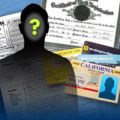INVESTIGATIVE HYPNOSIS: Is it effective or completely bogus?

Way back in the 1970's when I was a college student studying criminal justice I participated in a student practicum at the local sheriff's office. Most of my "work" consisted of going through stacks of crime reports and calling back theft victims to reassure them that even though the sheriff's office had not yet been able to figure out who stole their property and the likelihood of them ever getting their stolen property back was minimal, the sheriff's office was "still on the case." It was more of a public relations effort to make people feel that the sheriff's office had not forgotten about their case and was concerned that they had been a crime victim.
To my surprise, most people appreciated the follow-up. They understood that the sheriff's office was doing what they could and in a few cases the victims provided new suspect information that could aid in the investigation. Some told me they understood there was little the sheriff's office could do and suggested that the sheriff's office discontinue investigating their case and concentrate on more serious crimes. Others told me that they had already figured out who stole their stuff and had recovered it themselves. Excellent - case closed!
On one occasion a detective asked me if I would like to assist him in a Hypnotism Session. He explained that there had been a "grab-and-run" theft at a jewelry store and an elderly lady saw the thief run from the store and get into a waiting get-a-way car. This lady could not remember much about the get-a-way car and the detective was hoping that under hypnosis she could provide a good description of the car and maybe even a license plate. This sounded much more exciting than calling and propitiating theft victims, so I jumped at the opportunity.
The hypnosis session occurred in a small quiet room at the sheriff's office. I have no clue as to the training this detective had at the time, but since investigative hypnosis was in its infancy in those days, I suspect it was minimal. The lady sat in a big comfortable office chair and the detective sat in a smaller chair in front of her. The detective dimmed the lights and spoke to her in a soft tone and directed her attention to the incident. His words got slower and softer and it appeared as if he was trying to get her to totally relax. At one point he asked her to close her eyes and continue listening to him. It was surreal - almost right out of the movies!
I sat in the back of the room with a pen and pad in hand. My job was to write down anything pertinent the lady might say. After about 10 minutes of soothing words, the lady was able to recall the color of the thief's get-a-way car (bright red) and gave a general description of a sedan. Surprisingly, she was able to slowly and deliberately "recall" the license number. I dutifully jotted it down.
After the session was over, the detective asked me what I thought. I said I didn't know, but silently I thought she was faking it . . . but you never know. It turns out that two other credible witnesses described the thief's car as blue, so it was likely not red. Also, the license plate information turned out to belong to a truck that had been crushed in a junk yard years before. The hypnosis session was certainly interesting, but it produced NO credible leads. In fact, it produced FALSE leads.
Mysterious and Controversial
Hypnosis can be traced back to ancient Egypt and has always been surrounded by mystery and controversy. During the last 20 years the use of hypnosis in criminal investigation has dramatically increased and acceptance has varied from jurisdiction to jurisdiction. In very simple terms, the intent of investigative hypnosis is to aid a crime victim or witness in recalling important information that their mind has repressed. Investigators can then follow-up on this information and hopefully solve crimes that were likely otherwise unsolvable. It is not intended to be a tool for extracting "the truth" from suspects or for coercing witnesses into fabricating information.
Today there are numerous classes, seminars, and other trainings that teach investigators (both law enforcement and private investigators) the science behind investigative hypnosis, how to do it properly, and the legal and ethical issues associated with using hypnosis in an investigation. A typical training might include (at a minimum) training in:
Psychology of eyewitness testimony
Procedures for obtaining identification evidence
Field studies of eyewitness memory of actual crimes
Traumatic Memory and Ordinary Memory
Criteria-based statement analysis
Investigative Memory Enhancing Techniques
Legal issues associated with hypnosis including the admissibility of hypnosis-derived evidence.
Legal Issues Abound
Today most investigators agree that in some situations investigative hypnosis, like polygraph testing, can be a useful tool in investigating some crimes. Often it is used as a last resort when all leads have been exhausted and the crime remains far from being solved.
But, acceptance of hypnotic induced testimony from witnesses and even investigator follow-up based upon hypnotic induced statements, has been scrutinized carefully and sometimes skeptically, by courts. Every situation is different and case law in many U.S. States is continually evolving, but the general rule is that SOMETIMES hypnotic induced testimony, or investigator actions that flow from it, are accepted in court and SOMETIMES it is not. How's that for a clear legal line that only a lawyer could appreciate!
In a published article, the respected Journal of the American Medical Association expressed a position paper that stated "The Council finds that recollections obtained during hypnosis can involve confabulations and pseudomemories and not only fail to be more accurate, but actually appear to be less reliable than nonhypnotic recall. The use of hypnosis with witnesses and victims may have serious consequences for the legal process when testimony is based on material that is elicited from a witness who has been hypnotized for the purposes of refreshing recollection." (JAMA 1985; 253:1918-1923)
The general proposition that pre-trial statements made under hypnosis are hearsay and unreliable and therefore not generally admissible, is followed by most courts. See Creamer v. State, 232 Ga. 136, 205 S.E.2d 240 (1974); Emmett v. State, 232 Ga. 136, 205 S.E.2d 231 (1974); State v. Pierce, 263 S.C. 23, 207 S.E.2d 414 (1974); Greenfield v. Commonwealth, 214 Va. 710, 204 S.E.2d 414 (1974); State v. Conley, 6 Kan. App.2d 280, 627 P.2d 1174 (Kan. Ct. App. 1981); and State v. Beachum, 97 N.M. 682, 643 P.2d 246 (1981).
And in some states, all testimony from a person whose memory was "refreshed" by hypnosis is prohibited. In the case of State v. La Mountain, 125 Ariz. 527, 611 P.2d 551 (1980), the Arizona Supreme Court stated: "Although we perceive that hypnosis is a useful tool in the investigative stage, we do not feel the state of the science (or art) has been shown to be such as to admit testimony which may have been developed as a result of hypnosis. A witness who has been under hypnosis, as in the case here, should not be allowed to testify when there is a question that the testimony may have been produced by that hypnosis."
But consider a ruling from the North Dakota Supreme Court in the case of the State of North Dakota v. Joseph Lesley Brown. 337 N.W.2d 138 (1983). The court stated "The major issue raised on appeal is whether or not a witness whose memory has been previously enhanced through the use of hypnosis may testify in a criminal trial in North Dakota. We conclude that a witness who has previously been hypnotized is not rendered incompetent to testify. Rather, we hold that hypnotism affects the credibility but not the admissibility of such testimony."
Other court cases, with different variations of these decisions, abound.
In my home State of Oregon, there is yet another twist to the legality of testimony elicited under hypnotism. Oregon has a long-standing statute that allows witnesses who have been subjected to "hypnosis" or "mesmerism" prior to trial, to testify for either side in a criminal trial if the entire hypnotic procedure is "recorded on either videotape or any mechanical recording device." The statute further requires that "the unabridged videotape or mechanical recording shall be made available to the other party or parties." See Oregon Revised Statute (ORS) 136.675. This seems to follow the North Dakota Supreme Court reasoning that witnesses who have been previously hypnotized are not incompetent to testify and it is up to the jury (or judge in the case of a Court trial) to assess the credibility of that testimony.
Summary
Using hypnosis to help victims and witnesses recall information can sometimes aid an investigator in an investigation. It is being used with increasing frequency by law enforcement and private investigators but is still viewed skeptically by many courts. Usually, it is only used when investigators have exhausted all leads and the case would likely end up in the cold case file unless new leads can be developed. In private investigations, qualified investigators sometimes use hypnosis to recover memory for civil or criminal trials and it is also used to help investigators find lost or misplaced property.
Related items:
 1/28/2017
I am a Private Investigator. What do I really do?
1/28/2017
I am a Private Investigator. What do I really do?
 1/28/2017
What You Should Know BEFORE You Hire a Private Investigator
1/28/2017
What You Should Know BEFORE You Hire a Private Investigator
 11/3/2017
The Creepy Guy Case
11/3/2017
The Creepy Guy Case
 2/27/2018
Protect yourself with Secret Phone Numbers
2/27/2018
Protect yourself with Secret Phone Numbers
 4/18/2018
Check Me Out!
4/18/2018
Check Me Out!
